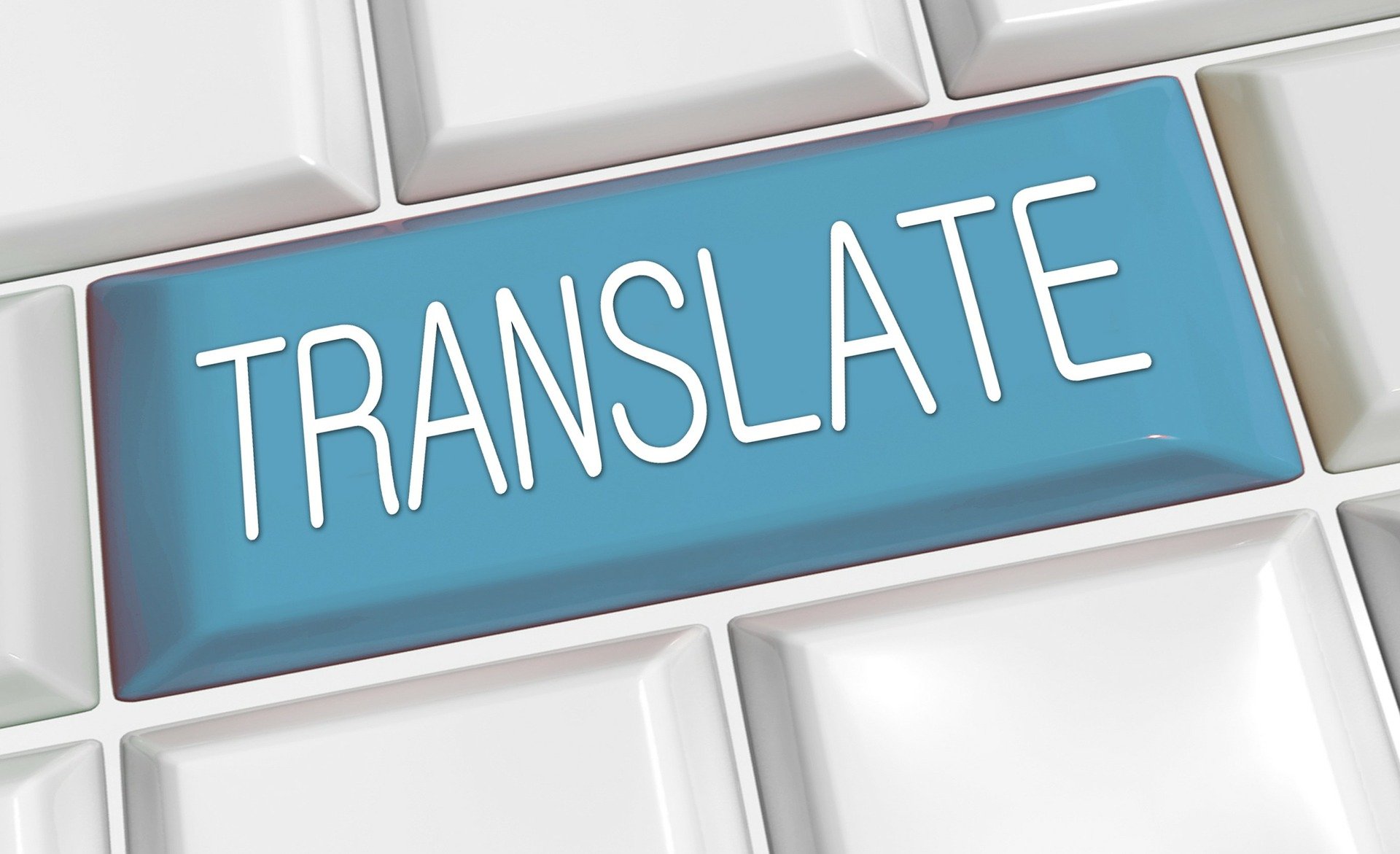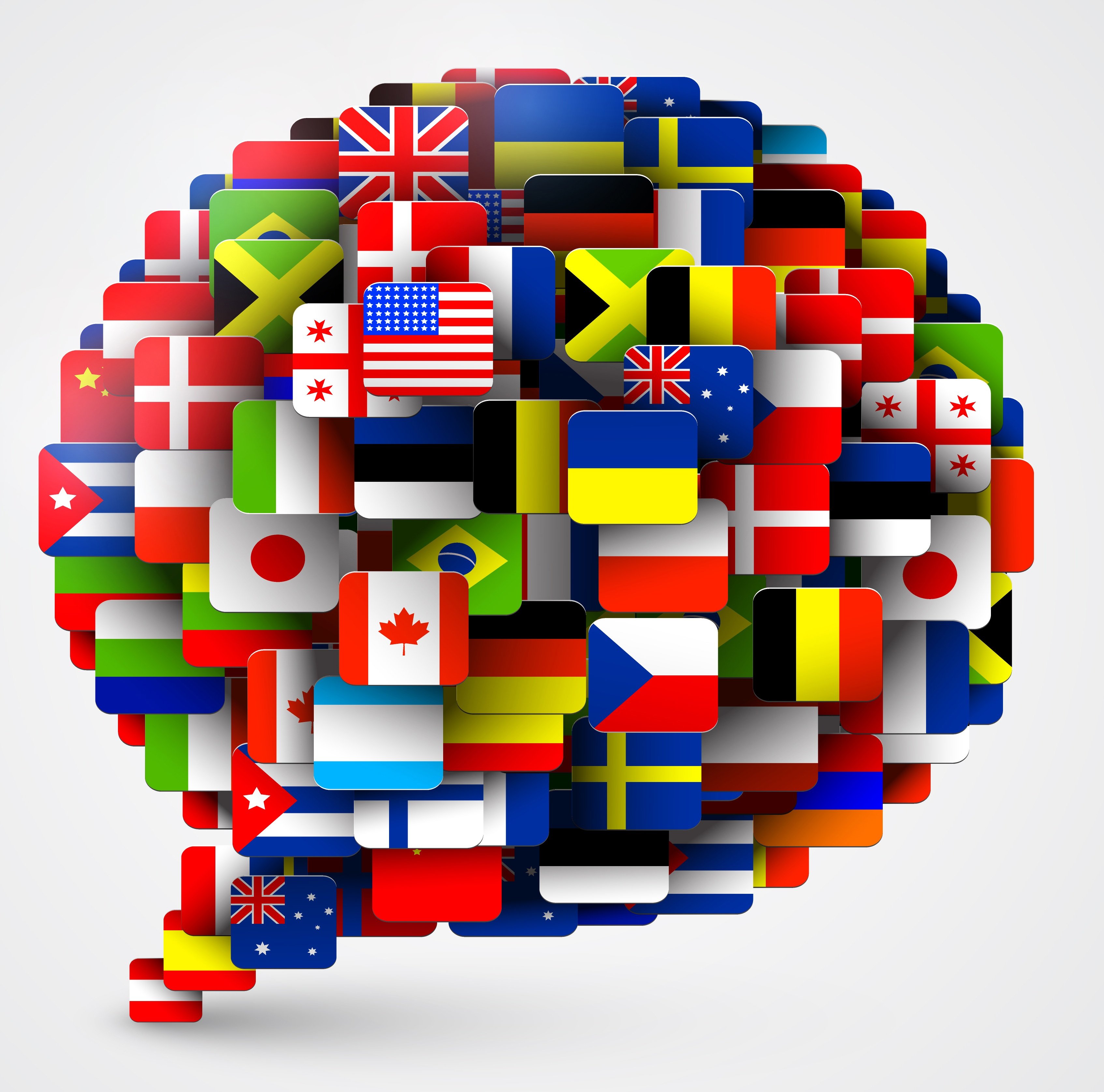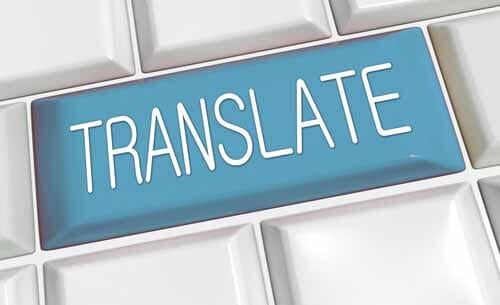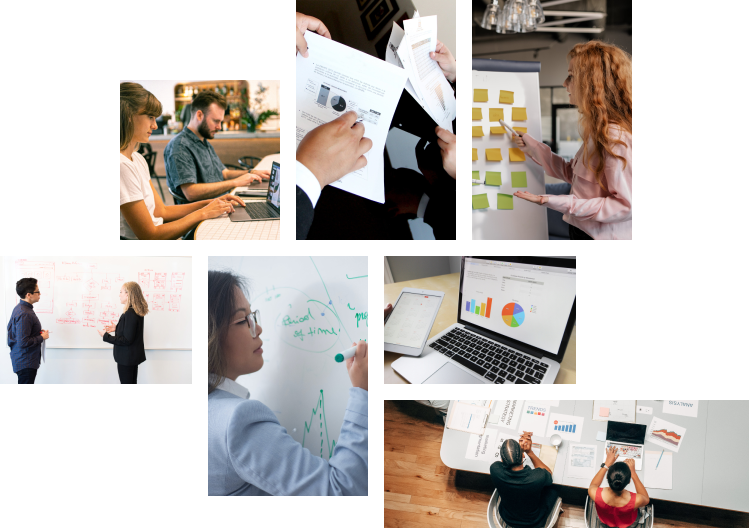Listen to Audio Version:
As humans, we adapt. As we have for the past five million years, ever since the emergence of the earliest hominids and the subsequent cycles of intense climatic change. Our brains grew and evolved so we could survive and that is the most obvious example of how we “evolve to adapt,” says Rick Potts, director of the Human Origins Program at the Smithsonian Institution National Museum of Natural History. “Man had two key advantages,” he continues, “our brains and our capacity for culture (Scientific American, September, 2013).” Our “social brains” adapt by creating and sharing information. That’s how deep-seated our cultural proclivities are, and just as important is how quickly we can adapt to new ideas and navigate dissimilar or atypical cultural norms.
It follows that the global business community seems ostensibly to agree that cultural adaptation – sensitivity toward the norms of other cultures – be at the forefront of how we do business. We work on our understanding, resist appropriation, pivot when we need to. And still, we fall victim to the occasional blunder.
Blunders are inevitable because we are human. Everyone has a “tidbit” to tell, a story about a language or cultural mistake that led to laughs or misunderstandings. But what’s the real takeaway? Most are due to literal translation or interpretation. Some are unfortunate. Others are super bad luck awful. None are intentional.
That’s the level of complexity involved with a high-quality, culturally adapted marketing translation. Here we discuss the process by which a language services provider meets that challenge, our goal being to simplify the decision to translate because it always, assuredly, opens the doors to new markets.
Framing Your Translation Project
Translation is essential to growing a business across borders, yet often overlooked until the need for it is evident. It’s well known that people prefer to visit websites in their native language, place their trust in companies that invest in translation; they’ll even pay more to purchase goods and services from translated websites. Done right, with a strategy in place from the start, translation is arguably your most cost-effective way to expand internationally.

Globalization (Commodities)
In its simplest form, globalization involves translation into a select language, or multiple languages, to meet a specific, utilitarian purpose. The translated content can then be used wherever that language is widely spoken. French, for example, is the official language in at least 29 countries, as well as a de facto language in 21 African countries. For our clients, this level of translation typically works to broaden the company’s sales reach or to meet regulatory requirements. It’s practical, conveys useful information, and requires little or no attention to the nuances of regional differences in language and culture.
The aim: Imagine, for example, a US-based company manufacturing unicycles. To sell into Spanish-speaking enclaves around the world, whether in the Americas, Mexico, Spain, or Argentina, to name a few, means a Spanish translation of product information, website ordering, and safety information. It’s a known product the consumer understands and needs so the buyer’s journey is predictable, and the company is simply responsible for delivering a reliable product alongside comprehensive safety information that can be understood no matter the exact location.
The translation services solution:
- Evaluate business goals
- Prioritize content
- Translate crucial content (website ordering, safety and regulatory, FAQs, and customer service information)
- Record process and replicate in new languages
Localization (Competition)
To localize, address every facet of that translated material, based on geography. The checklist for localization typically includes the proper use of:
- Colloquial language and slang
- Colors
- Images
- Date formats and calendars
- Currency and numeric formats
- Website formatting
Consider our unicycle manufacturer. About two decades ago, Japan’s Ministry of Education mandated that schools provide core strength-building toys – unicycles, stilts, and hula hoops, among other things – in a bid to instill perseverance and independence in kids. Adults, too, caught the unicycle fever and, to this day, Japan produces many of today’s top unicyclists. (See them at the next World Championship!)
The aim: Understandably, the production of unicycles multiplied and that market shift – from commodity to competition – means our unicycle manufacturer now needs to localize. The Japanese consumer suddenly has more product options, including items manufactured in Japan, so can be more discerning. And no matter the product or the country involved, the buyer’s journey – even for the non-Japanese consumer – now becomes a step more involved.
The translation services solution:
- Globalization process, above
- Website translation with attention to the localization checklist above
- Desktop publishing to translate content in timely fashion
- Culturally relevant marketing strategy and content translation
Cultural Adaptation (Industry-Wide Shift)
Localization and cultural adaptation often go hand-in-hand, but where localization focuses on adapting content based mainly on geography, cultural adaptation goes further by addressing your specific target audience and industry. That means addressing differing cultural norms arising out of our differing histories, religious leanings, value systems, and traditions.
The aim: In other words, our unicycle manufacturer must now figure out a way to be competitive in the competitive unicycle racing industry. They now need to translate with specific intention. The buyer is discerning and demanding; the buyer’s journey is protracted and more meaningful.
In this instance it’s not only a new market so much as a seismic shift in the industry’s landscape. Showcasing product in the education market quickly commoditized the unicycle; now, competitive athletes from all over the world are sourcing product, so our unicycle manufacturer needs to localize and adapt its message to win business.
The translation services solution:
- Globalization
- Localization
- Website translation culturally adapted according to country or specific region
- Culturally adapted marketing content, including brand analysis and attention to regional differences in business practices (e.g., high- versus low-context countries)
Cultural sensitivity looms large at this level of a translation strategy. Finding the right balance between accuracy and respect is key – it’s always important to provide an accurate translation, but in some cases it may be necessary to use a more liberal translation to preserve meaning and intention. Another challenge involves delivering a message while honoring cultural differences. The simple fact that it can go as fabulously wrong (vis-à-vis “Eating with Chopsticks” by Dolce & Gabbana) as it can be extraordinarily successful (“Red Bull Gives you Wings”) speaks to its volatility. At this stage, translation services typically must also pay special attention to stereotyping, slang and idioms, graphics, branding, and packaging.
Transcreation (New Market Creation)
Transcreation means sharing the sheer joy of riding a unicycle. It transforms your messaging to convey that feeling of accomplishment, of being a kid again, of your newfound core strength and independence, Japan-style! In fact, it’s not strictly “translation” so much as it is eliciting the feeling of your message in another language, in the style and custom of another world. Like selling the benefits and joy of a unicycle to someone that has only ever ridden a bicycle.
The aim: It’s not merely convincing someone to buy a unicycle, it’s conveying the emotions associated with riding a unicycle so effectively that, in essence, the translation itself creates new buyers. In international sales, this means even the intention of the message could change slightly, depending on the target audience’s cultural leanings, in an effort to parlay the emotions associated with a particular product or service. Comprehensive transcreation projects are generally rare and taken on by larger conglomerates – McDonald’s Corporation, for example, beautifully tailored its “I’m Loving It” campaign to each country in which it operates – though any high-quality translation services agency should have experience with transcreation projects.
The translation services solution:
- Globalization
- Localization
- Cultural Adaptation
- A holistic translation management strategy that conveys information with empathy; that is, with a fundamental understanding of your international buyer
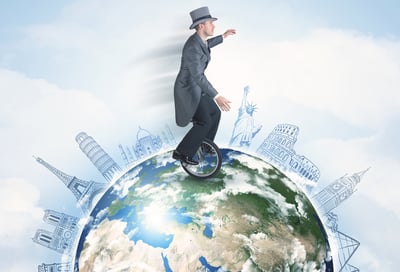
The Elegance of the Culturally Adapted Translation
The literary world has long understood the importance of high-quality translation; most book awards now include it as a category. Pulitzer Prize winner and eminent translator Jhumpa Lahiri, in her Translating Myself and Others, describes translation as the process by which she “restores the meaning of a text by means of an elaborate, alchemical process that requires imagination, ingenuity, and freedom.”
Lahiri evokes the esoteric, certainly, because it is fiction writing at its finest. And while there definitely remains a component of the ephemeral in every translation, in the international business world translators are specifically trained to translate according to the particulars of a client’s global marketing strategy. Rapport International, for example, maintains specific individual translator/client relationships for years, even decades, a concrete element essential to Lahiri’s “alchemical process.” These evolved translator/client relationships mean clear, consistent communication of both meaning and intent because of the translator’s deep-seated understanding of the company’s fundamental goals and values.
The Buyer’s Journey Across Industries
Interestingly, at Rapport International we’ve seen these levels of translation services apply to any and every industry, often correlating at specific intervals.
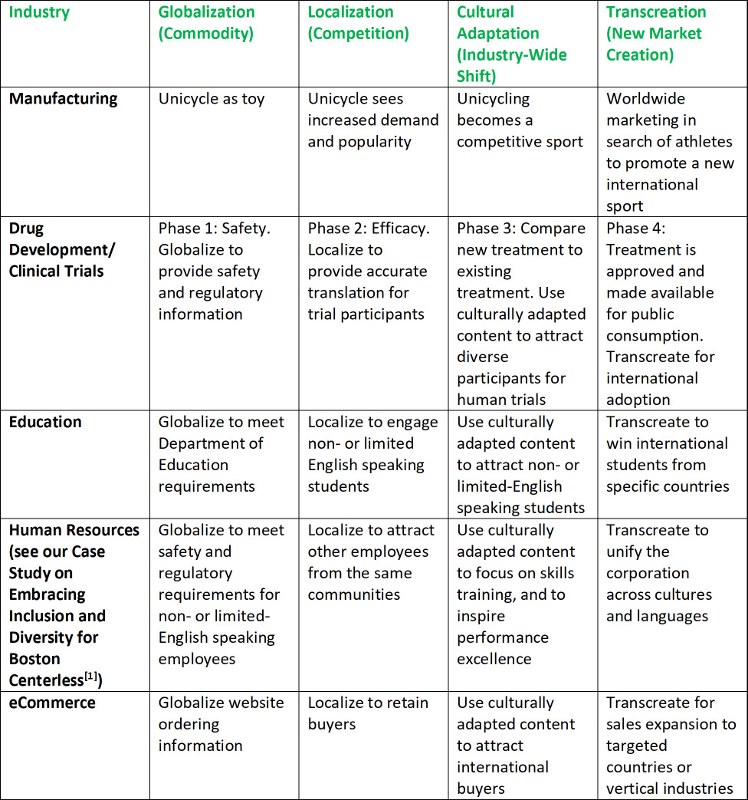 [1]Case Study on Embracing Inclusion and Diversity for Boston Centerless
[1]Case Study on Embracing Inclusion and Diversity for Boston Centerless
Perhaps reaping the benefits of a deliberate translation strategy can be described as a bit alchemical after all, in the sense that a small investment can produce so much momentum and sustain that momentum continuously over time – in essence, help a company evolve. It doesn’t matter what stage you’re on to see continued returns:
- Globalization: expand your existing market and audience while creating a repeatable strategy for other languages
- Localization: select additional languages to reach new audiences
- Cultural Adaptation: attract new markets, turning sales outreach into inbound marketing
- Transcreation: create new markets
First described in 1996, Potts’ theory of variability selection – that human evolution occurred in fits and spurts rather than gradually over time – can be applied to any species living and prevailing through a period of environmental instability. Met initially with skepticism from evolutionary geneticists, who had charted a more gradual development during less volatile conditions, Potts’ theory prevailed because it could be tested and proven by important markers in hominid history: the origin of new species and the development of new tools. Says Potts: "What we see is that it isn't just the origin of new [hominid] species that emerge during these periods, but also new ways of life, of living and interacting with the environment.”
It's the perfect analogy for our unicycle manufacturer, who we’ve seen progress from globalization to localization, to cultural adaptation and transcreation, as it used translation services to weather the changes of its unique business climate. It’s also the analogy to best encapsulate what Rapport International and other high-quality translation services companies strive always to achieve – the continued evolution and growth of your corporate strategy during tumultuous economic times.
Perhaps, too, focusing on a translation strategy for business growth is for you a bit of a novel idea, one laced with a little fear or skepticism. In that case, always bear in mind that using culturally adapted translation for growth has been tested and proven by client companies who have demonstrated international business growth during periods of domestic economic instability. Case in point: I bet you’re thinking about buying a unicycle.
Rapport International specializes in multilingual communications, providing language translation and interpretation services that are accurate and culturally appropriate. We use the right voice and the correct terminology to avoid liability, customize services to your needs, and deliver on time and within your budget. With our 100% satisfaction guarantee, you can trust that it’s done right. Contact us today if you would like more information or to get a free quote.
Rapport International specializes in multilingual communications, providing language translation and interpretation services that are accurate and culturally appropriate. We use the right voice and the correct terminology to avoid liability, customize services to your needs, and deliver on time and within your budget. With our 100% satisfaction guarantee, you can trust that it’s done right. Contact us today if you would like more information or to get a free quote.
Popular Posts
Popular industry news, interviews, technologies, and resources.






